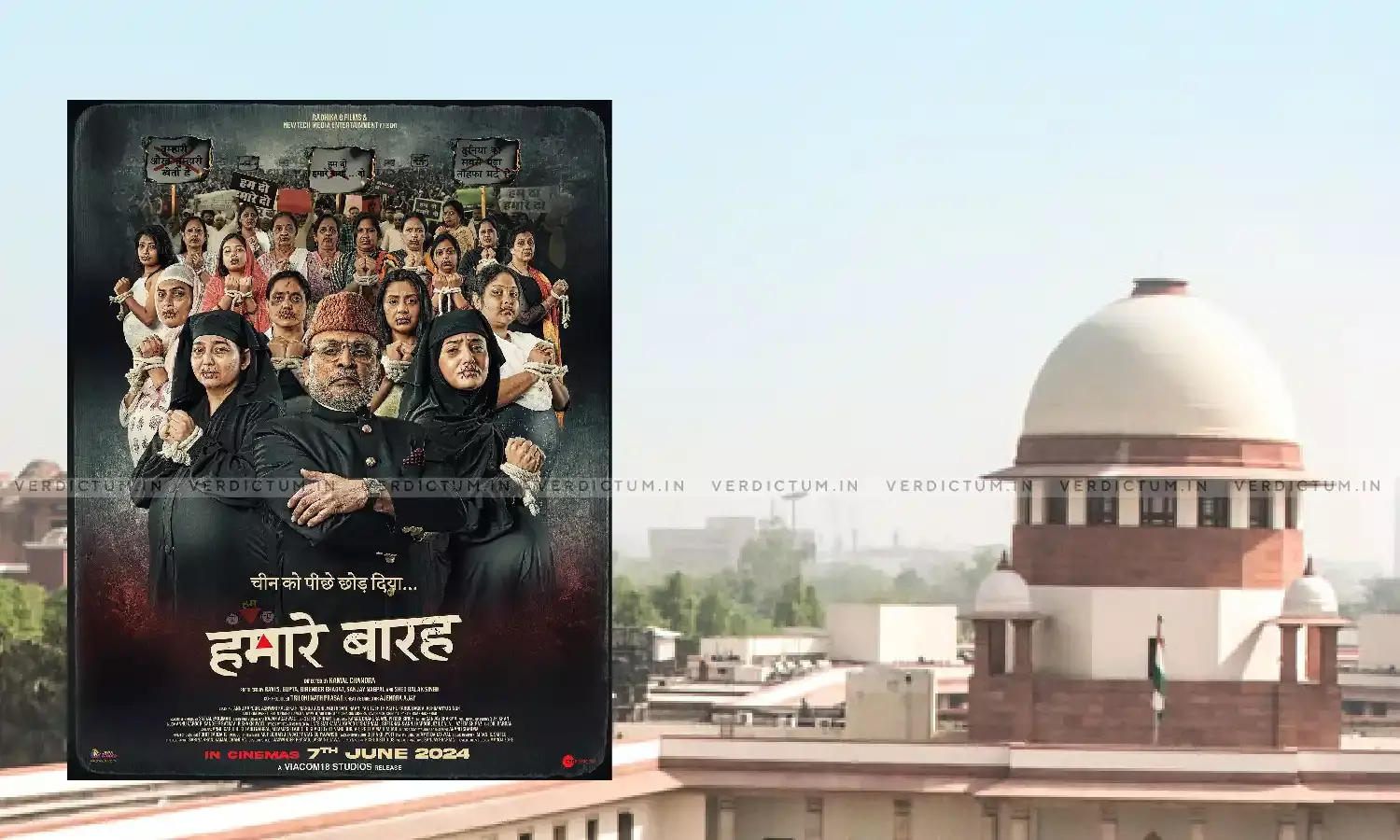Apex Court Refuses To Entertain Fresh Petition Against Screening Of Movie "Hamare Baarah"
The Supreme Court, today, refused to entertain the writ petition under Article 32 of the Constitution against the screening of the movie "Hamare Baarah" which portrayed married Muslim women as lacking individual rights, based on an alleged misreading of the Quranic verse "Aayat 223."
Recently, the Bombay High Court has permitted the release of the film “Hamare Baarah” after suggesting various changes to the film such as the muting of dialogues including “Allah Hu Akbar” and recitation of Ayat 223, increased duration of disclaimer and message related to Sharia Law, etc.
The Bench of Justice Vikram Nath and Justice SVN Bhatti heard the matter and refused to entertain the petition. Consequently, the counsel for the Petitioner withdrew the petition.
Justice Vikram Nath said, "Why should we entertain another 32 Petition for this?... The High Court has examined it and thereafter allowed the movie to be screened...We will not entertain it here. If you want to file an amendment, do that. If you want to challenge the order, you can challenge it...We are not inclined to hear the petition today."
Justice Bhatti said, "You must appreciate one thing, we are not saying that it is to be immediately dismissed. What we are saying is that let us follow the procedure which is consistent with our system...The Bombay High Court has seen the movie, the Director expunged a few scenes and shots...then I think I read somewhere that a few conditions were also imposed...if seek leave and file an appeal then it would be correct to examine."
The Bombay High Court, on June 19, 2024, had ordered that the disclaimer which was shown at the inception of the Film should be displayed on screen for a duration of 12 seconds and the message about Sharia Law, together with its Hindi translation, should be displayed on screen for a duration of 12 seconds.
The High Court had also suggested muting a few dialogues including the words “Allah Hu Akbar” which appears at a specific time in the movie.
On June 5, 2024, the High Court had issued an interim restraint order against the exhibition, circulation, or public availability of the film "Hamare Baarah” on any public forum or platform.
The petitioners had argued that the film was in “complete contravention” of the provisions of the Cinematograph Act, 1952 and violated constitutional provisions under Articles 19(2) and 25 of the Constitution. They had claimed that the film, particularly its trailer available on YouTube, portrayed married Muslim women as lacking individual rights, a portrayal based on a misreading of the Quranic verse "Aayat 223." This, they had argued, was derogatory to the Islamic faith and the dignity of married Muslim women in India.
Subsequently, on June 7, 2024, the High Court had allowed the release of the movie after the makers of the film volunteered to delete controversial dialogues. The Court had modified its earlier order that had restrained the release of the film on any public forum or platform, including YouTube.
The Petitioner, being aggrieved, had challenged the orders passed by the High Court permitting the release of the film after several deletions of controversial dialogues before the Supreme Court.
On June 13, 2024, the Supreme Court had suspended the screening of the movie "Hamare Baarah" until the final disposal of the pending writ petition by the Bombay High Court. The Bombay High Court has also directed the Respondents to donate within 8 weeks of the Film being released a sum of Rs. 5 Lakhs to Ideal Relief Committee Trust which will be used to provide reliefs to people in times of natural disasters.
Cause Title: Syed Ahamed Basha v. Union Of India (W.P.(C) No. 386/2024)




